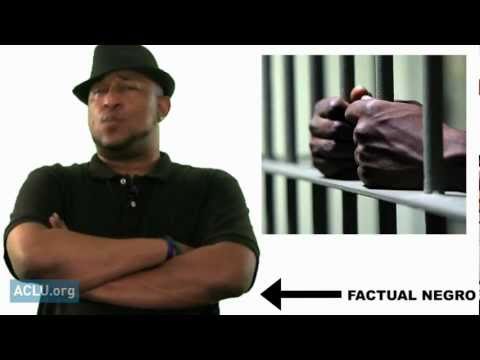Since President Nixon declared the war in the 1970s, a trillion dollars in drug-war spending has not reduced the overall rate of drug addiction, let alone approached the goal of a drug-free America. Instead, the war on drugs drives the militarization of police forces as well as mass incarceration—particularly of Black people, even though they use drugs at about the same rate as whites. Felony drug convictions can bar access to voting, along with job procurement assistance, education, housing and other services, functioning as a “New Jim Crow” that relegates millions of people of color to permanent second-class citizenship.
The ACLU believes that a public health and community-based approach yield far better results than prosecutions and imprisonment. For decades, we have helped lead the way to end this unwinnable war—and we believe that we must keep asking important questions as well.
What should we do about drug addiction?
Drug addiction is a public health issue, not a criminal justice one.
The ACLU has fought the criminalization of drug use on all fronts. In the courtroom, our attorneys challenged the unjust imprisonment of women suffering from addiction, prompting legislators to pass a law curbing the practice. We have denounced increased drug war spending for law enforcement, advocating for the resources to go towards addiction treatment and other dwindling social services. Ending this crushing epidemic requires effective public health interventions, like making available more treatment beds and needle exchanges.
How can Massachusetts successfully implement new marijuana law?
After Massachusetts voters decriminalized possession of an ounce or less of marijuana in 2008, the ACLU opposed the enactment of local ordinances meant to undermine the will of the voters by keeping bans in place. We supported the successful 2012 ballot initiative that authorized use of medical marijuana in Massachusetts and the 2016 initiative to tax and regulate recreational marijuana for adults.
The ACLU of Massachusetts is dedicated to the safe, meaningful and successful implementation of the state’s new marijuana law. Specifically, we are focusing efforts on issues of social justice—from helping people get retroactive justice for previous actions convictions that are no longer crimes to ensuring that the new surge of businesses is led by people of color and others most affected by the failed War on Drugs.
Why are mandatory minimum drug sentences such a bad idea?
The ACLU of Massachusetts has fought mandatory minimum sentencing for drug crimes since their huge expansion under the U.S. Congressional Anti-Drug Abuse Act in 1986. A 2013 report showed that people of color make up just 20% of the Massachusetts population and only one-third of convicted drug offenders but they are about 75% of those sentenced to a mandatory minimum term.
The bottom line: mandatory minimums are expensive, ineffective and profoundly discriminatory.
We are challenging mandatory minimums before the state's high court in Commonwealth v. Laltaprasad, where we are defending the below-minimum sentence given to our client Imran Laltaprasad. The Commonwealth argues that judges can never impose sentences below the minimum. Accordingly, we are asking the Supreme Judicial Court to affirm that in cases involving mitigating facts, such as Mr. Laltaprasad’s case, judges have both statutory and constitutional authorities to sentence below the minimum.
What does justice look like for victims of the state’s drug lab scandals?
After revelations broke about a scandal at the Hinton state drug lab, where chemist Annie Dookhan falsified or tampered with evidence that affected more than 24,000 cases, we fought all the way to the Massachusetts Supreme Judicial Court for a comprehensive remedy.
In January 2017, our case Bridgeman v. District Attorney for Suffolk County yielded a landmark ruling. The Supreme Judicial Court ordered district attorneys to dismiss a majority of the tainted cases, setting up the single largest dismissal of wrongful convictions in our nation’s history. Five years after Dookhan’s misconduct was uncovered, tens of thousands of defendants who have been living with the consequences of their convictions have the opportunity to clear their records and move on with their lives.
Despite the victory, a second drug lab scandal involving the Amherst Lab and former chemist Sonja Farak, looms over Massachusetts. It came to light in May 2016 that Farak engaged in staggering misconduct for eight years, affecting thousands more cases across the Commonwealth. These findings further illustrate the pervasive damage caused by the drug war and the many shapes it takes here in Massachusetts.
How can you help?
- Hold your legislators accountable if they stand in the way of fair, meaningful implementation. Find out who your legislators are and how to contact them here.
- Know your rights and stay informed. While some parts of the marijuana law have gone into effect, more changes are still to come as the implementation process continues.
- Share this page with five friends. Make sure they know what is at stake with ending the drug war.
- Contribute to our work. Your contributions make it possible for us to do things like fight against the drug war in court and promote alternatives.
- Join our email list for breaking news and new ways to add your voice.

